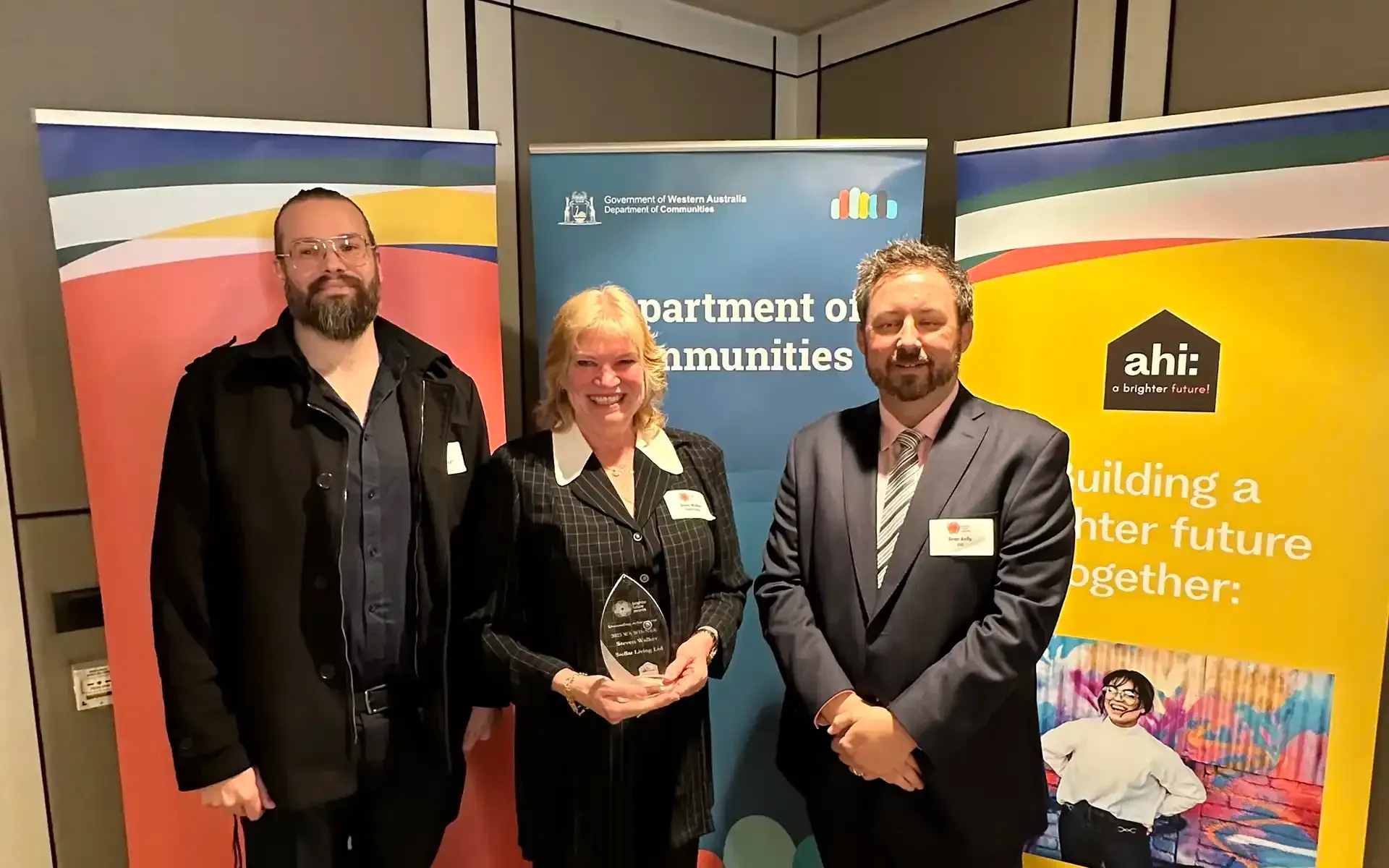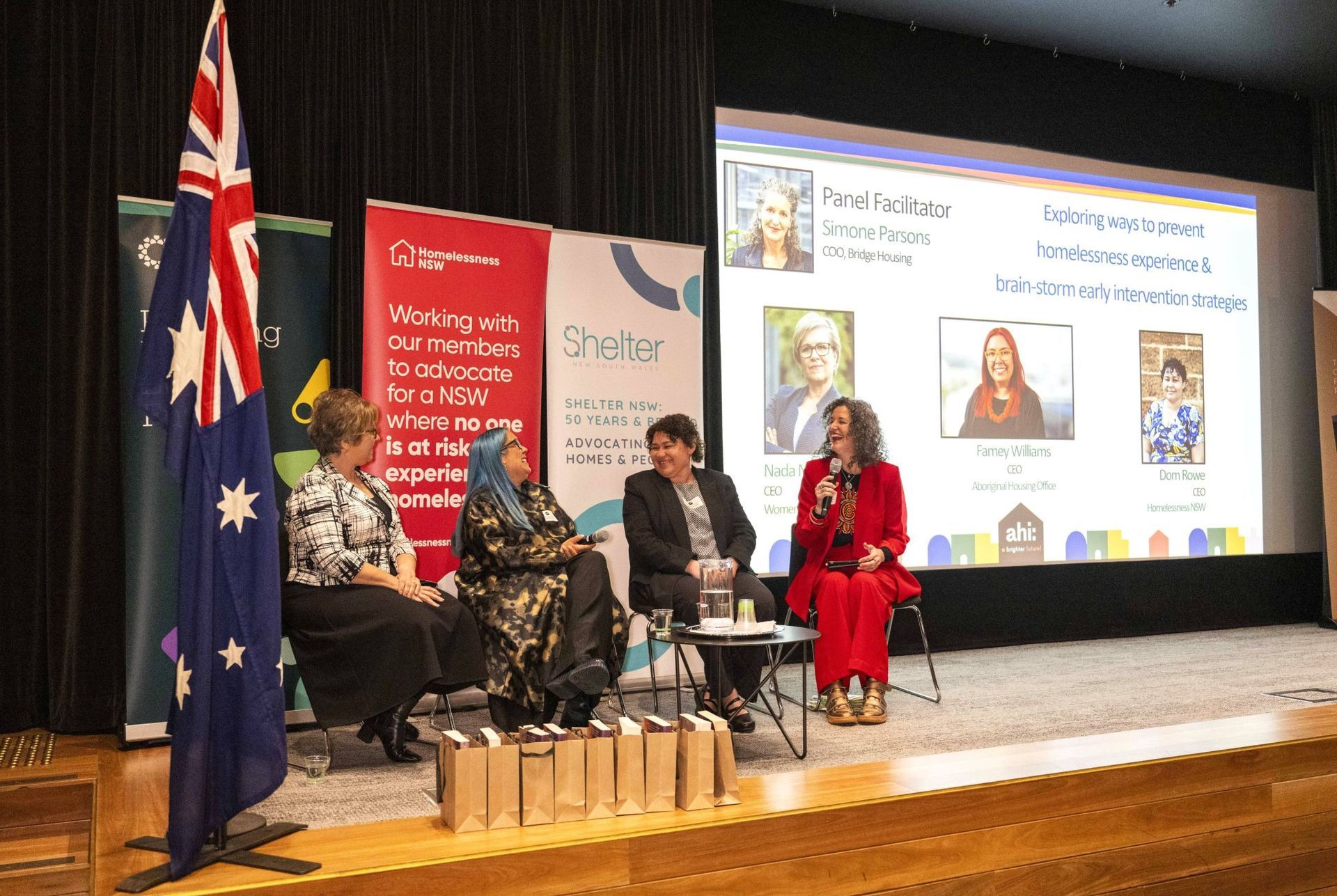The passing of Steven Walker, the recipient of the 2023 WA ahi: Brighter Future award for Outstanding Achievement Award, has left a huge hole in the sector. We look at why honouring him posthumously was deemed important by the awards judges.
Stellar Housing CEO Kathryn Moorey, who nominated Steve Walker for the ahi: Brighter Future Awards, described him as “a number cruncher with a big heart who could see the possibility of growth and expansion to provide more affordable homes for vulnerable people”.
Having commenced his working life as a chartered accountant, Steve amassed an impressive 40-year executive-level career across the course of his life, which included a raft of achievements in finance, human resourcing, information technology and strategic development.
His social housing journey began in 2001 when he joined the board of Centrecare Marriage and Family Services, and Centrecare Inc. At that time, Centrecare housed and provided essential wraparound services for vulnerable families––largely coming from the state’s justice system, as well as children in care––with their fledgling 30-property portfolio.
In 2010, the Centrecare board embarked on a strategy of creating revenue streams that would enable them to expand their accommodation and housing services. Leaving the relative comfort of his role as Chief Financial Officer at the Activ Foundation—a not-for-profit disability support provider—Steve assumed the role of inaugural CEO and Managing Board Member for Centrecare’s newly established independent community housing provider, Stellar Living, to help deliver on their strategic objective.
"In his 10 years at the helm, the organisation exploded from having just 30 properties in its portfolio to more than 250."
A firm believer that not-for-profit organisations should be run as businesses, Steve was committed to ensuring Stellar Living retained a clear sense of vision, purpose and relevance in a complex and demanding environment. In his 10 years at the helm, the organisation exploded from having just 30 properties in its portfolio to more than 250, with 170 of these properties being owned assets. He also established a reputation for delivering a high standard of property management for the organisation.

As CEO, Steve wasn’t focused solely on asset growth. He also recognised the importance of providing a helpful and supportive tenant experience and getting the 'back of house' systems in place to make the most of their limited resources. In 2017, in partnership with Zavanti, Stellar established a one-stop-customer-relationship-manager-shop - a state-of-the-art tenancy and property management system - that also supplied reporting and data analysis to help run the business more efficiently and effectively.
The project saw Steve embark on a crash course in IT specialisation, HR management and corporate development management, building on his CEO and CFO skills. The resulting platform, in the words of Kathryn Moorey, “is rapidly becoming a go-to CRM in Australia and [Aotearoa] New Zealand for both large- and medium-sized community housing providers".
"Under his stewardship, Stellar Living was a signatory to the Community Housing Agreement."
Steve remained at Stellar Living until 2020 and, during his time as CEO, positioned the organisation as a growth provider. Under his stewardship, Stellar Living was a signatory to the Community Housing Agreement, and subsequently achieved Tier 2 registration status with the WA state government. Furthermore, he saw to it that Stellar would be the first organization to volunteer for the state’s pilot registration process in 2017, saying he wanted to take the lead in defining the future for community housing providers, which meant leading by example.
Steve's financial achievements are undeniable. From their humble beginnings of managing properties on head leases only, Stellar Living was transformed into an organisation with an annual income of $2.6 million and an asset base of $40 million—an increase of more than 300%. That wouldn't have happened without Steve Walker's leadership.
After retiring as CEO, Steve continued to serve on the board of Stellar Living, so he could contribute to the organisation’s growth and help set the vision for their future.
He may have kept a low profile, but Steve and his achievements––his passions and tireless persistence in promoting the sector to actively shift thinking––were well known in Western Australia’s community and state housing sectors. His reputation for pushing the agenda for more social housing, as well as the financial and economic benefits of community housing, was legendary, and for good reason.
Working behind-the-scenes, Steve collaborated with peak industry bodies, including the Community Housing Coalition WA and the Urban Development Institute of Australia WA, providing reports and financial modelling, and promoting the need for change, innovation and partnering. He also created a regional committee for the Community Housing Industry of Australia (CHIA), becoming its inaugural chairperson in 2017, ensuring the Western Australian sector reaped the benefits of being part of a national voice.
"Steve saw himself as a ‘strategic reformist’ and believed that if businesses worked smarter, they could do more and do better."
“Steve saw himself as a ‘strategic reformist’ and believed that if businesses worked smarter, they could do more and do better," stated Kathryn Moorey. “He had a passion for a strong housing continuum, and that community housing providers are essential for the success of the continuum and in housing policy development.”
“He provided a voice for all community housing providers, particularly for Tiers 2 and 3 in WA,” she continued. “Through Steve’s perseverance and dedication to the sector, Stellar Living demonstrated that it was possible to provide growth in the social housing space with the input of some strategic management transfers.”
Leanne Strommen, General Manager Community Services at Centrecare, paid tribute to Steve Walker by saying he “made lasting friendships built on mutual respect and grew a strong understanding of the operations of community organisations and the critical support they provide to communities. For Steve, it was both a pleasure and a privilege to be a part of the Centrecare story.”
“His work at both Centrecare and Stellar Living made a tangible and significant difference in the community,” Leanne said, “and his leadership was integral to Stellar Living flourishing as the trusted and respected organisation it is today.”
As Kathryn Moorey concluded, “Steve was a provider of solutions rather than someone who just admires the problem.”
All at the ahi: salutes Steve Walker for his impressive service to the sector and pay our deepest condolences to his family and friends.
The ahi: Brighter Future Awards will be taking place again in 2025
Share This Article
Other articles you may like








